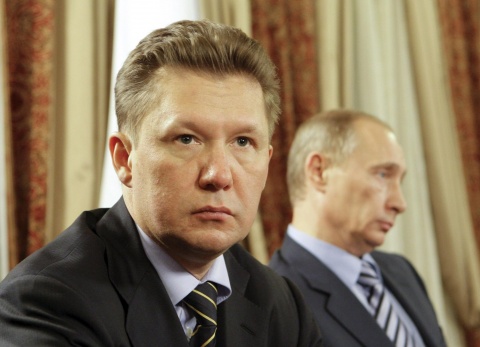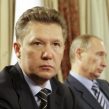
A Post-Putin Interregnum Takes Shape in the Minds of Putin’s Elite
Publication: Eurasia Daily Monitor Volume: 9 Issue: 129
By:

July has brought a drought to the Russian political climate; even the rise in communal tariffs has barely registered as the urban dwellers migrate en masse to their dachas. The lull gives both the stakeholders in Putin’s regime and the risk-takers in the opposition camp an opportunity to reflect on the current state of affairs and to contemplate the prospects of transformation of the on-going crisis (Nezavisimaya Gazeta, July 4). Indeed, in Russia’s modern history, a new presidential term has never opened with such forebodings of tribulations, even considering the wealth of troubles the country has gone through in the past two decades. Even Boris Yeltsin’s second term, which started in July 1996, saw hopes for overcoming the chaos of Soviet implosion. Whereas, Vladimir Putin’s fourth term (as he remained firmly in charge while Dmitry Medvedev was a caretaker president) is marked with the acknowledgement that efforts to preserve the remnants of stability are doomed to failure (Gazeta.ru, July 6). This reckoning inevitably raises a heretical question: Is Putin the right man to preside over the plunging crisis and the, as yet, uncertain recovery from it?
The most visible disarray is evident in Putin’s personal loss of control over the oil and gas business, from which the most lucrative financial flows are generated. His trusted lieutenant Igor Sechin sought to make himself into the key conduit of this control by running the newly-organized presidential commission on the energy sector. But other big players were not exactly thrilled (Polit.ru, July 7). Medvedev complained directly to Putin that a situation under which the boss of one of the oil companies would be in a position to issue instructions to the ministers was incompatible with the basic principles of the government’s work (Kommersant, July 5). As a result, Putin’s decree on setting the commission was edited retroactively so that the paragraph that had granted the secretary extraordinarily wide authority was deleted (RIA Novosti, July 5). This does not mean, however, that the government is empowered to proceed with the privatization of Rosneft against Sechin’s wishes.
Another knot of intrigue tightens around Gazprom, which used to be Putin’s favorite energy-political asset but is now a net drain on presidential power. Alexei Miller, Gazprom’s hard-nosed CEO, puts on a brave face, asserting that its effective monopoly in the gas market makes perfect economic sense. But the government is moving forward with the plan to eliminate the traditional tax privileges for this super-giant, insisting that the needs of the federal budget take precedence over the interest in securing its profits (Moskovkie Novosti, July 2). Gazprom is under heavy pressure in its key European market and has agreed to cut prices for its German partner E.ON instead of arguing the case in international arbitrage (RBC Daily, July 4). Gazprom is also stuck in an unproductive bargaining with Ukraine, where Putin seeks to score a “historic” foreign policy triumph (Moskovskie Novosti, June 28). The political decision on unbundling and re-energizing this ailing behemoth is long overdue, but Putin refuses even to begin to contemplate the proposition for Gazprom’s partial privatization.
Yet another clash of interests and ambitions focuses on the defense budget and the colossal rearmament program launched in 2011 against the objections of former Finance Minister Aleksei Kudrin. A consensus is emerging among the experts working for the government that the timetable for this program should be extended by at least three years after 2020 in order to reduce the scope of inflated budget expenditures in the near-term (Vedomosti, RIA Novosti, July 2). Putin rejected this prudence and demanded sustained priority attention to rearmament, adding somewhat philosophically: “If we do not plan for the future now, at least in terms of general parameters, then we will have no future at all.” Medvedev, however, dared to defy his senior partner, suggesting that budget allocations for defense could indeed be curtailed (RBC Daily, July 6). He even appropriated the argument made by Kudrin that the enterprises were not able to deliver the extravagant defense order and would only squander the money (Ezhednevny Zhurnal, June 6).
Each of these episodes reflects the unease in the ruling bureaucracy about Putin’s course of distributing petro-revenues among old industries, clans of cronies, and the core electorate hooked on “bread and circuses.” Medvedev has gathered a score of “modernizers” in his government, but their ambivalent efforts at updating this distributive model are frustrated not only by Putin’s indifference but also by disapproval in the United Russia faction in the State Duma, which pays scant attention to the fact that the Prime Minister is now formally the chairman of this party (Newsru.com, 6 July). The idea of “modernization” has gained traction with the business and political elites, but Medvedev has lost credibility as its champion, and most adherents are convinced that economic innovation cannot advance without political liberalization (Vedomosti, July 4). The escalating harassment and persecution of the “white opposition” – from the punitive investigation of the May 6 “riots,” to the new legislation that would brand all NGOs receiving Western grants as “foreign agents,” to the harsh punishment of the young women of Pussy Riot for a “blasphemous” performance of their punk group – proves that liberalization is the last thing the Kremlin wants to try.
Many parties to these business and political conflicts are beginning to discover that the issue is not that Putin makes bad decisions, but that he cannot make any decisions. The President tries to stay above this fray much as he did last Saturday while observing the devastated city of Krymsk in Krasnodar Krai from a helicopter. Krymsk had been hit without warning by flood water released from a reservoir (BestToday, 8 July). The high-volume state propaganda continues to portray Putin as the sole source of wisdom, foresight and free lunches. But in fact, he is no longer the authoritative arbiter in clan feuds or the guarantor of the “prosperity and stability” social contract. His only source of legitimacy is the deliberately created and jealously guarded lack of an alternative. Indeed, Putin’s own experience of politically popping up out of nowhere back in 1999 illustrates the transience of such status at the top. The real issue is thus not about the President’s replacement but about the continued need for such an overblown Russian potentate.




